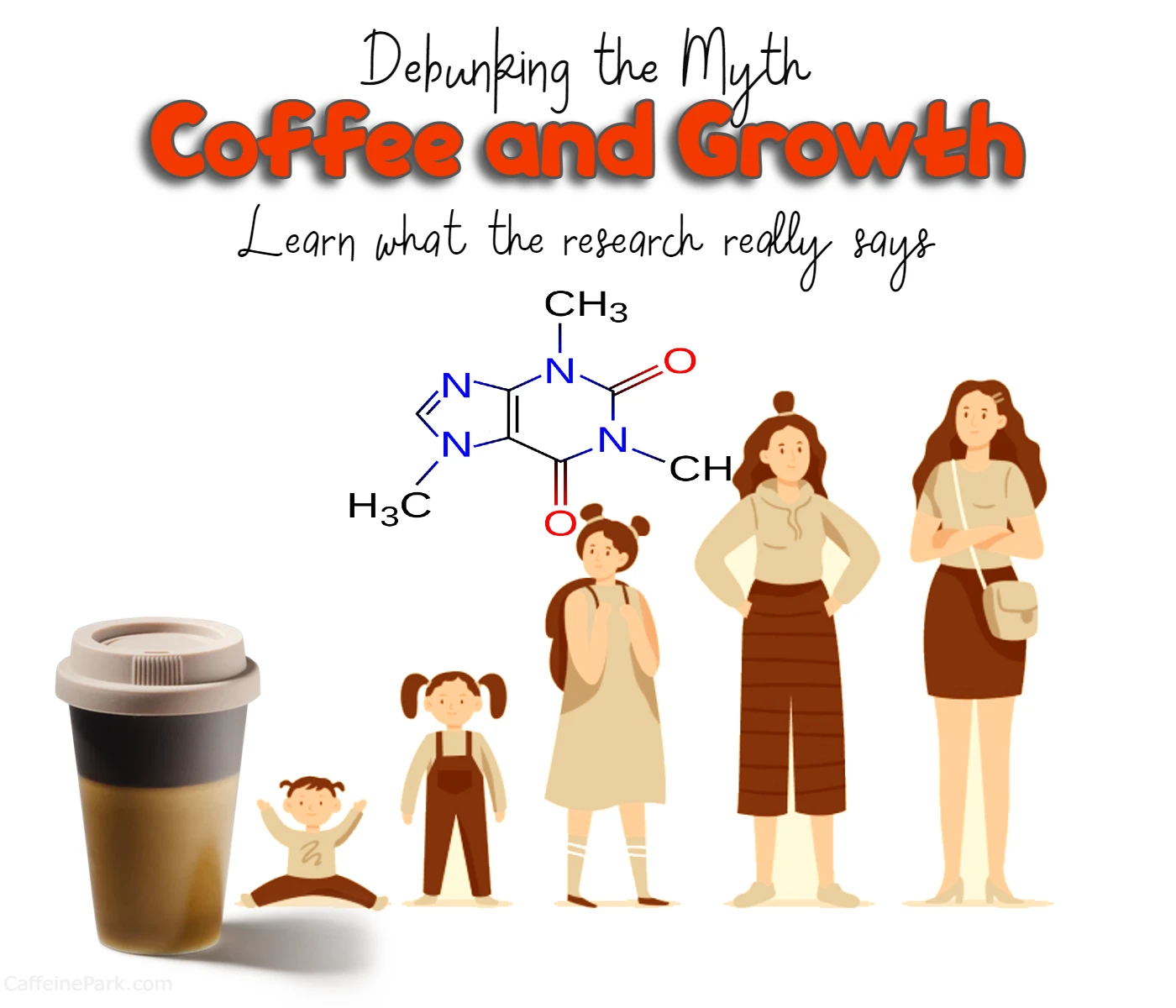
Caffeine and Metabolism
If you’re like most people, you’ve probably had a cup of coffee or two to start your day. But have you ever wondered why you feel more energized and alert after drinking it? Well, caffeine is the main active ingredient in coffee and other beverages like tea and energy drinks. It’s a natural stimulant that affects your central nervous system, making you feel more awake and alert.
But caffeine does more than just wake you up. It has been found to increase metabolism, which is the rate at which your body burns calories. This is why caffeine is often included in many commercial fat-burning supplements. It can also help mobilize fat from your fat tissues, making it available for your body to use as fuel.
If you’re interested in learning more about caffeine and its effects on metabolism, then keep reading until the end of this blog. I’ll cover everything from how caffeine works in your body to the potential benefits and drawbacks of consuming it. So, grab a cup of coffee and settle in, because you won’t want to miss out on this fascinating topic!
Caffeine as a Metabolism Booster
Caffeine is a natural stimulant that can be found in coffee, tea, chocolate, and many popular energy drinks. It is one of the most commonly consumed psychoactive substances in the world. When you consume caffeine, it enters your bloodstream and quickly makes its way to your brain. There, it blocks the action of adenosine, a neurotransmitter that promotes sleep and suppresses arousal.
By inhibiting adenosine, caffeine can increase the activity of other neurotransmitters in the brain, such as dopamine and norepinephrine. This leads to increased alertness, attention, and energy. In fact, caffeine is often used to improve mental and physical performance and is commonly found in pre-workout supplements and sports drinks.
But can caffeine really boost your metabolism and help you burn more calories? Let’s take a closer look at the evidence.
Caffeine’s Effect on Fat Burning
Caffeine can also increase the body’s ability to burn fat, which makes it a popular ingredient in many weight loss supplements. This effect occurs because caffeine stimulates the nervous system, which sends signals to the fat cells, telling them to break down fat. Caffeine increases blood levels of the hormone epinephrine, which travels through the bloodstream to the fat tissues, signaling them to break down fats and release them into the blood.
However, releasing fatty acids into the blood does not necessarily lead to weight loss unless you are burning more calories than you consume through your diet, which is known as a negative energy balance. This balance can be achieved by either eating less or exercising more. In addition, taking fat-burning supplements, such as caffeine, can also be a complementary strategy.
Caffeine’s Effect on Metabolic Rate
Resting metabolic rate (RMR) refers to the rate at which you burn calories at rest. The higher your metabolic rate, the easier it is for you to lose weight and the more you can eat without gaining weight. Studies have shown that caffeine can increase RMR by 3–11%, with larger doses having a greater effect. Interestingly, most of the increase in metabolism is caused by an increase in fat burning.
However, the effect is less pronounced in those who are obese. One study showed that caffeine increased fat burning by as much as 29% in lean people, while the increase was only about 10% in obese individuals. The effect also appears to decrease with age and is greater in younger individuals.
Caffeine and Appetite
In addition to its effects on fat mobilization and resting metabolic rate, caffeine may also affect appetite. Some studies have suggested that caffeine can reduce hunger and increase feelings of fullness, leading to a reduction in calorie intake.
However, the evidence on this is mixed. Some studies have shown that caffeine can reduce appetite and calorie intake, while others have found no effect. It may also depend on the individual, as one study found that caffeine had an appetite-reducing effect in men, but not in women.
Caffeine Tolerance
There is one major caveat to caffeine’s effect on metabolism: people become tolerant of its effects over time. In the short term, caffeine can boost the metabolic rate and increase fat burning, but after a while, people become tolerant to the effects and it stops working.
However, even if coffee doesn’t make you expend more calories in the long term, there is still a possibility that it blunts your appetite and helps you eat less. In one study, caffeine had an appetite-reducing effect in men, but not in women, making them eat less at a meal following caffeine consumption. However, another study showed no effect on men. Whether coffee or caffeine can help you lose weight in the long term may depend on the individual. At this point, there is no evidence of such long-term effects.
Potential Risks and Side Effects
While caffeine has been shown to have some positive effects on metabolism and weight loss, it’s important to remember that excessive caffeine consumption can have negative side effects.
Caffeine is a stimulant that can cause anxiety, jitteriness, and insomnia, especially if consumed in high doses or late in the day. It can also lead to dehydration and cause an increase in heart rate and blood pressure. In addition, if consumed in large amounts, caffeine can interfere with nutrient absorption and cause nutrient deficiencies.
It’s also worth noting that many coffee drinks are high in added sugars and calories, which can counteract any potential weight loss benefits of caffeine.
Conclusion
Caffeine, the main stimulant found in coffee, has been shown to increase metabolic rate and fat burning, making it a popular ingredient in many weight loss supplements. However, these effects may be less pronounced in obese individuals, and the body can become tolerant to caffeine over time.
While caffeine can have some positive effects on metabolism and weight loss, it’s important to consume it in moderation, as excessive caffeine consumption can have negative side effects. It’s also important to remember that many coffee drinks are high in added sugars and calories, which can counteract any potential weight loss benefits of caffeine.
Facts
Here are some facts about caffeine and metabolism that you may find helpful:
- Caffeine is a natural stimulant that can increase metabolism by stimulating the nervous system and increasing levels of the hormone epinephrine, which signals the body to break down fat cells and release them into the bloodstream.
- Research suggests that caffeine can increase resting metabolic rate (RMR) by 3-11%, with larger doses having a greater effect. This increase in metabolism is primarily due to an increase in fat burning.
- Caffeine can also improve exercise performance by 11-12% on average, which can further help increase metabolism and support weight loss efforts.
- However, while caffeine can be a useful tool for boosting metabolism and supporting weight loss, it is important to use it in moderation and in combination with other healthy lifestyle habits such as regular exercise and a balanced diet.
- Some people may be more sensitive to the effects of caffeine than others, and excessive caffeine consumption can lead to side effects such as jitters, anxiety, and disrupted sleep.
Overall, caffeine can be a helpful tool for increasing metabolism and supporting weight loss, but it is important to use it wisely and in conjunction with other healthy habits. As with any dietary supplement or lifestyle change, it is always a good idea to talk to your healthcare provider before making any significant changes to your routine.
FAQs
Caffeine can increase metabolism and promote the release of fatty acids from fat tissues. However, the effect may decrease with age and is less pronounced in those who are obese. Additionally, people can become tolerant of the effects of caffeine over time.
The amount of caffeine needed to boost metabolism can vary based on individual factors such as age, weight, and caffeine tolerance. However, studies have shown that doses of at least 100 mg can increase metabolism.
Other ways to boost metabolism include exercise, building muscle through strength training, staying hydrated, eating enough protein, and getting enough sleep.
Read More:





